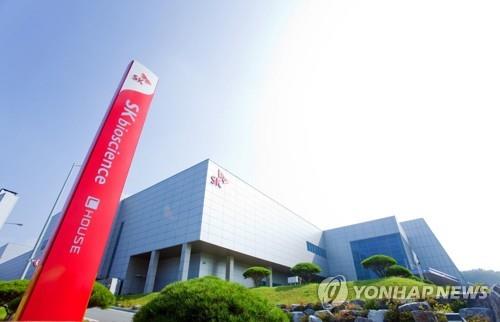- California Assembly OKs highest minimum wage in nation
- S. Korea unveils first graphic cigarette warnings
- US joins with South Korea, Japan in bid to deter North Korea
- LPGA golfer Chun In-gee finally back in action
- S. Korea won’t be top seed in final World Cup qualification round
- US men’s soccer misses 2nd straight Olympics
- US back on track in qualifying with 4-0 win over Guatemala
- High-intensity workout injuries spawn cottage industry
- CDC expands range of Zika mosquitoes into parts of Northeast
- Who knew? ‘The Walking Dead’ is helping families connect
SK bioscience to provide 5 mln doses of cell-based flu vaccine SKYCellflu
SK bioscience Co., a pharmaceutical affiliate under South Korea’s SK Group, said Wednesday it will produce 5 million doses of its signature cell-based influenza vaccine SKYCellflu nationwide from next month for the coming winter season.
It resumed the production two years after it had stopped manufacturing the prefilled syringe-typed vaccine due to the COVID-19 pandemic.
“SK bioscience has won approval for its quadrivalent flu vaccine from South Korea’s drug authorities and shipped it from the company’s production facility at Andong,” the company said in a statement. “The amount of the flu vaccine that SK bioscience will supply to South Korea from the end of this year to early next year is about 5 million doses.”
The vaccine will be available at local hospitals and medical centers next month, it added.

SK bioscience produced some 10 million doses of SKYCellflu in 2020 but suspended its production the following year due to the pandemic. During the two-year period, it had focused on producing its coronavirus vaccine SKYCovione and other licensed vaccines from Novavax Inc. and AstraZeneca Plc.
SKYCellflu is designed to protect against all four different flu viruses — two influenza A viruses and two influenza B viruses — announced by the World Health Organization (WHO) for this winter season in the northern hemisphere.
It was first developed as a cell culture-based trivalent influenza vaccine in 2015 and became the world’s first cell-based quadrivalent vaccine in 2016.
Now, it is the only egg-free flu vaccine licensed for use in South Korea, according to SK bioscience.
Cell-based vaccines develop flu viruses, or antigens, in cultured cells of mammalian origin instead of in hen’s eggs. The cell-grown antigen production offers faster and more stable production of vaccines compared to embryonic chicken eggs, with the avoidance of egg allergen.
SK bioscience said SKYCellflu has been approved in 10 nations, including Malaysia, Thailand and Singapore, and the company is also seeking approval in 10 more countries.











